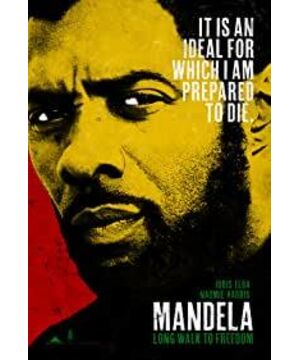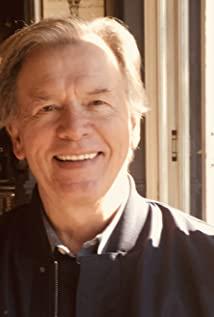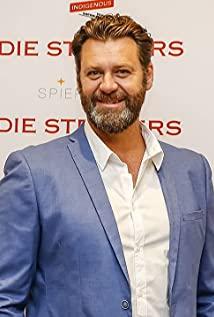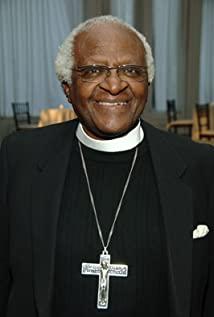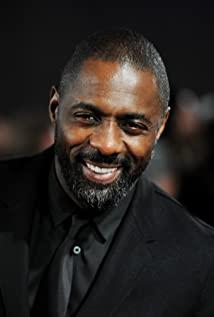Regardless of the elements of the filming of the soundtrack and actors, as far as the plot is concerned, it is straightforward and straightforward. Mandela's nearly 50 years of life experience are forced into the 143-minute film. The details are hidden and the explanation is unclear. The general plot development makes the whole film no bright spot. In a hurry, with big ambitions and little guts. The director seemed to want to swallow mountains and rivers in anger, but found that he couldn't swallow the giant egg, so he had to be smooth and thoughtful, and simply swallow it hard.
It is often said that "ideas determine destiny", and the formation of a person's thoughts is closely related to his childhood. Needless to say about a great man like Mandela.
From the perspective of humanities, Mandela was born into a large family. His father died of tuberculosis when he was 9 years old. His primary school teacher believed that a white-ruled society should take a name that was suitable for white people, so he changed it to Nelson Mandela , which planted the first "seed of resistance" for him.
But the film just flashed the young Mandela without any explanation. Of course, as a feature film with limited time, it is a reasonable choice to choose to omit this point and leave room for narrative in the second half of life, but it seems that the characters are abrupt and the early preparation is insufficient.
Starting from life, Mandela left the country where he was born and came to Ford Hall to study at university. He found that the bad situation of black people was far more serious than the trivial matters of white people driving and black people having to sit in the back seat. Every day is full of The current situation of turmoil, violence, bloodshed, and unease made him experience a huge transformation in his life and mind, and planted a second "seed of resistance" for him.
The film uses several scenes of riots and violence, as well as intimidating crowds, passing by, and the characters' inner transformations are not refined, just like passive advancement, which is innate.
From the perspective of communication, Mandela was ordered to drop out due to his participation in the unreasonable policy activities of the student organization at Ford Hall University. He simply came to Johannesburg and went through security, paperwork and other work before and after. Mandela, who was not ideal, met a man It is also the most important part to approve friends who are in the same situation and become best friends. Mandela is no longer alone, and like-minded best friends give him the power of courage to explode.
The above "seeds", from the initial germination, the irrigation of wind and rain, to the final emergence, after a long period of struggle and struggle, finally came to its maturity, but the first half of the film did not have any ink on this link, on the contrary , The focus is on women, children, terrorist activities and other scenes. After watching it, I only feel that the primary and secondary are reversed, and the character characterization is not in-depth.
It is often said that everything needs the right time and place, and the birth of a great man is not enough to be gifted. The timing and talent needed are the most important. The so-called times make heroes, but at that time Mandela was at most just one of the thousands of anti-apartheid policy elements.
Great men are not gods, and there is no guarantee that they will not make mistakes. Mandela also organized underground armed activities to carry out large-scale struggles and revolts, and there is no guarantee that anyone will be killed. A large number of anti-apartheid movements made the white government hate it, and finally in 1962, he was sentenced to prison for "incitement", "sabotage" and other crimes, depriving him of his freedom for life.
Mandela, who was imprisoned, suffered inhuman abuse and torture, which strengthened his willpower. At the same time, during his 27-year labor service, he also spent a lot of time thinking and fighting for freedom. Movement, is it done the wrong way? Mandela finally came to the conclusion that violent struggle will not solve the problem, but will deepen national hatred. Only peace and tolerance are the best medicines to alleviate people's inner hatred. This was the most critical turning point in Mandela's life, which made his spiritual world sublime and refined in an instant, making the characters more bloody, tearful, and true feelings. And if these are portrayed more clearly, the persuasiveness and rendering of the dialogue before the release in the film will not be greatly weakened.
But the film seems to have deliberately avoided the heart-wrenching masochistic scenes, but the torture suffered by his wife is even more outrageous, and the emotional layout is a bit "overwhelming".
After Mandela was released, he was supported by everyone. He fell into prison and faced enemies on all sides, and finally returned with a strong spiritual belief. He gives a speech, perhaps from the truth, and this scene is the only exciting moment in the whole film.
However, there was insufficient preparation in the early stage, the emotional transition was unclear, the primary and secondary were reversed, and the characters were not portrayed delicately. fifty points. Of course, this is only for the main line of the plot. The restoration of the scene and the soundtrack are a plus. The theme song "Ordinary Love" composed by U2 will undoubtedly add a lot of color, and the loss after watching can also be found on the theme song. A little soothing.
If you don't know Mandela yet, maybe you can get a short overview through this film, and if you already know Mandela, then please read his autobiography, maybe accompanied by this song.
Text/Lin Shenzhi (Southern Weekend)
View more about Mandela: Long Walk to Freedom reviews


